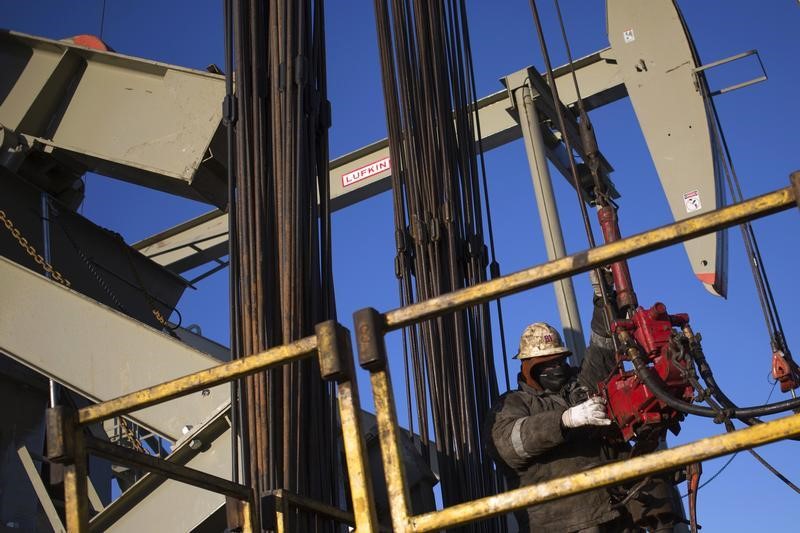* U.S. starts sanctions against Iran's fuel exports
* Washington grants temporary waivers to key buyers
* Iran says it will break sanctions and still sell oil
* Trump says he wants to go slower on sanctions for Iran's oil
By Stephanie Kelly
NEW YORK, Nov 5 (Reuters) - Oil prices were mixed on Monday after a steep five-day fall, as the United States formally imposed punitive sanctions on Iran but granted eight countries temporary waivers allowing them to keep buying oil from the Islamic Republic.
The sanctions are part of U.S. President Donald Trump's effort to curb Iran's missile and nuclear programs and diminish its influence in the Middle East.
Oil markets have been anticipating the sanctions for months. Prices have been under pressure as major producers, including Saudi Arabia and Russia, have ramped up output to near-record levels, while weak economic figures in China have cast doubt on the demand outlook.
News of waivers on the sanctions weighed on prices, analysts said.
"There are a lot of questions about the sanctions, about waivers," said Phil Flynn, analyst at Price Futures Group in Chicago. "There's some doubt that the sanctions are going to have the bite the market originally thought."
Brent crude LCOc1 futures rose 34 cents to settle at $73.17 a barrel. U.S. West Texas Intermediate (WTI) crude CLc1 futures fell 4 cents to settle at $63.10 a barrel.
Both oil benchmarks have slid more than 15 percent since hitting four-year highs in early October. Hedge funds have cut bullish bets on crude to a one-year low. United States has granted exemptions to China, India, Greece, Italy, Taiwan, Japan, Turkey and South Korea, allowing them to continue buying Iranian oil temporarily, Secretary of State Mike Pompeo said on Monday. Some of the countries are OPEC member Iran's top customers. on Monday said he wants to impose sanctions on Iran's oil gradually, citing concerns about shocking energy markets and causing global price spikes. officials have said the aim of the sanctions is eventually to stop all Iran's oil exports.
Pompeo said more than 20 countries have already cut oil imports from Iran, reducing purchases by more than 1 million barrels per day.
Sanctions have already cost Iran billions of dollars in oil revenue since May, U.S. Special Representative for Iran Brian Hook told reporters on a call on Monday. said on Monday it would break the sanctions and continue to sell oil abroad. foreign ministry expressed regret at the U.S. move.
Combined output from Russia, the United States and Saudi Arabia rose above 33 million bpd for the first time in October, up 10 million bpd since 2010, with all three pumping at or near record volumes. Abu Dhabi National Oil Co plans to boost oil production capacity to 4 million bpd by the end of 2020 and to 5 million bpd by 2030, it said on Sunday, from output of just over 3 million bpd. from analysis firm Kayrros showed Iranian crude production was broadly unchanged in October from September, with barrels still hitting the market alongside additional production from Saudi Arabia and Russia.
<^^^^^^^^^^^^^^^^^^^^^^^^^^^^^^^^^^^^^^^^^^^^^^^^^^^^^^^^^^^ REUTERS SUMMIT-No bull territory: Trading houses see lower oil prices in 2019
GRAPHIC: Russian, U.S. & Saudi crude oil production
https://tmsnrt.rs/2CTwqaq GRAPHIC: Crude oil prices have fallen since October
https://tmsnrt.rs/2P8BZsZ
^^^^^^^^^^^^^^^^^^^^^^^^^^^^^^^^^^^^^^^^^^^^^^^^^^^^^^^^^^^>
